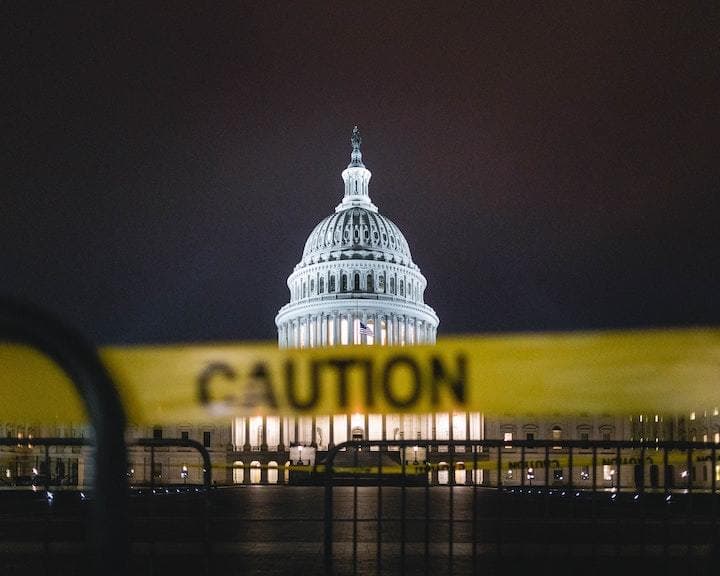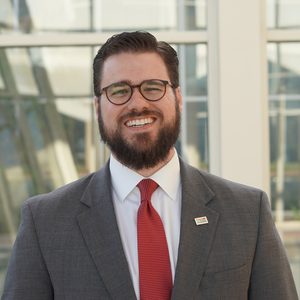
Criminal Justice
Ryan Haynie | November 22, 2021
Cancel culture goes from big tech to big government
Ryan Haynie
A recent lawsuit by Paycom against OCPA has highlighted the effort by big tech to silence its ideological opponents. That lawsuit, which claims Paycom was defamed by OCPA, appears to be a naked attempt to shut down OCPA by burying it in legal fees. And to that end, Paycom has retained Oklahoma’s largest law firm, McAfee & Taft.
But big-tech billionaires are not the only people in the cancel culture game. Lately, Oklahoma County District Attorney David Prater and Oklahoma Attorney General John O’Connor have been engaged in their own attempt to cancel members of the Oklahoma Pardon and Parole Board. Both state actors have sued Board members Adam Luck and Kelly Doyle, individually.
Prater filed first on September 8, 2021, requesting the Supreme Court to direct Luck and Doyle “to disqualify [themselves] from participating in or acting in any capacity to matters as it relates to inmate Julius Jones.” The decision has been criticized by Matt Schlapp, chairman of the American Conservative Union, and Tim Head, executive director of Faith and Freedom Coalition. The Oklahoma Supreme Court denied Prater’s Petition on October 18, 2021.
But the State had to have a second bite at the apple, so Oklahoma Attorney General John O’Connor filed his own Petition the same day Prater’s was denied. Relying on Prater’s brief, and arguing many of the same points, O’Connor also requested Luck and Doyle be “disqualif[ied] from participating in or acting in any capacity to matters as it relates to inmate Julius Jones.” The Supreme Court denied this Petition as well.
Recently, Doyle has requested the Supreme Court sanction the Attorney General for filing a brief out of time using “borrowed arguments” from a case that had already been decided. The brief for sanctions called the Attorney General’s actions “[f]rivolous steps beyond the bounds of legitimate advocacy by any Petitioner, more so when initiated by an official vested with the authority and responsibility of the Attorney General.”
Frankly, at the very least Doyle should be awarded her attorney's fees for having to respond to the Attorney General’s Petition. Who will want to engage in public service if they’re faced with massive legal bills because the state doesn’t like the way they go about their constitutionally prescribed duties? No one. But that’s the point. This isn’t just about Luck and Doyle. It’s a signal that the only people allowed to serve on the Pardon and Parole Board are those who align ideologically with prosecutors.
If one is tempted to believe that prosecutors never err or don’t inappropriately use their power, all you have to do is look at Michael Flynn, the Missouri couple, and two verdicts from late last week—the Kyle Rittenhouse case and the Andrew “AJ” Coffee IV case. All are examples of cases that never should have been brought.
Whether it's a big-tech billionaire or an overzealous bureaucrat, OCPA opposes those who seek to silence their ideological opponents. Bullies should incur consequences for their attempts to silence others. That’s the reason Oklahoma has an anti-SLAPP statute that seeks to protect groups like OCPA. And it’s why I hope the Supreme Court grants Doyle’s request for sanctions. And if it does, I hope Luck follows suit.

Ryan Haynie
Criminal Justice Reform Fellow
Ryan Haynie serves as the Criminal Justice Reform Fellow for the Oklahoma Council of Public Affairs. Prior to joining OCPA, he practiced law in Oklahoma City. His work included representing the criminally accused in state and federal courts. Ryan is active in the Federalist Society, serving as the Programming Director for the Oklahoma City Lawyer’s Chapter. He holds a B.B.A. from the University of Oklahoma and a J.D. from the University of Oklahoma College of Law. He and his wife, Jaclyn, live in Oklahoma City with their three children.